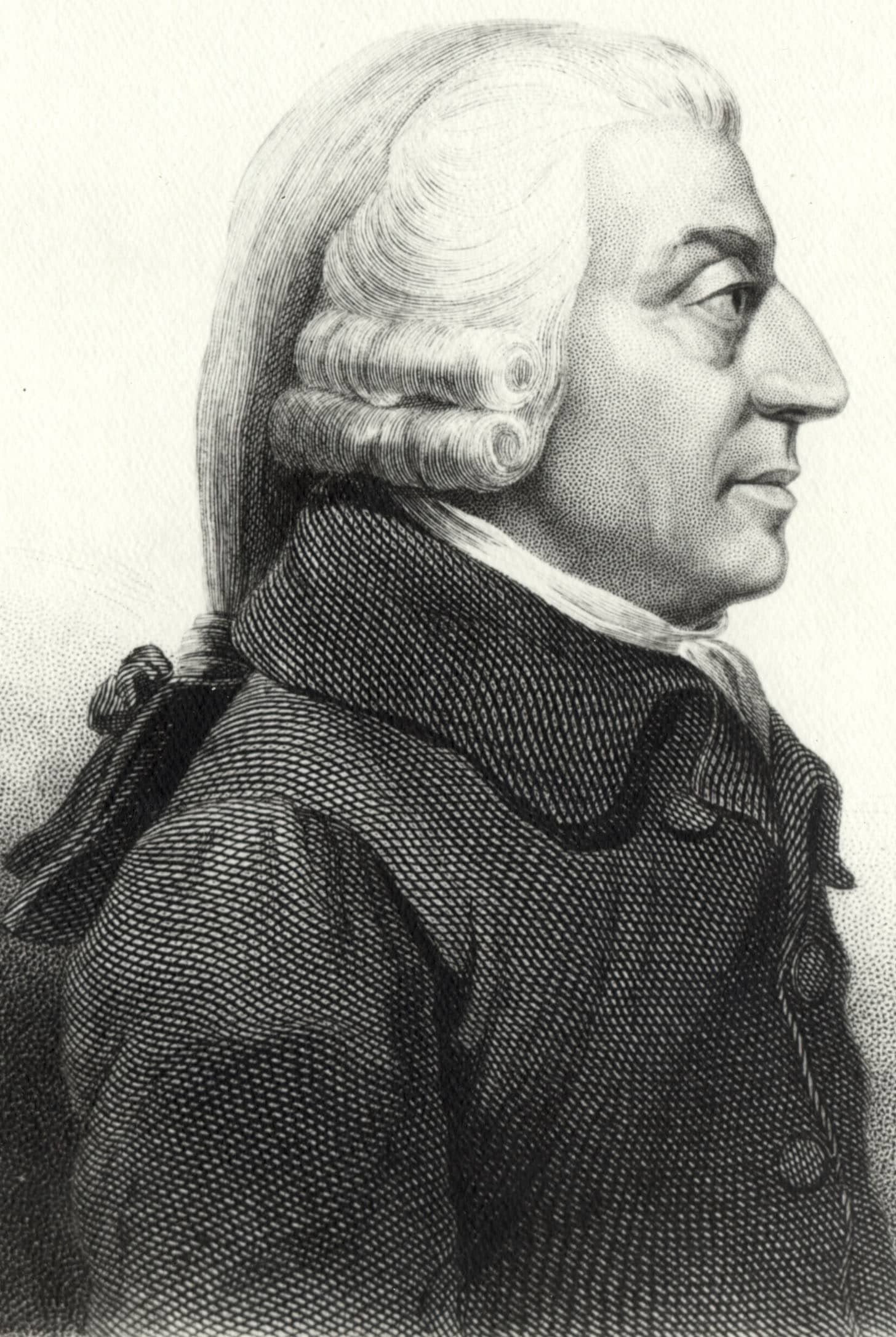Adam Smith (1723-1790) was a Scottish philosopher who published “The Theory of Moral Sentiments” (1759) and “The Wealth of Nations” (1776) and is often considered to be the father of capitalism.
Smith identified with Scottish common sense philosophers including Francis Hutcheson, David Hume, Thomas Reid and others. Smith’s works explained how market forces of supply and demand influence production and prices and they became widely known and fairly widely embraced in America.
Smith thought clergy in state-supported religions could lose their vitality
Smith believed deeply in the importance of education, which at the time was often dependent upon churches and members of the clergy. Smith observed in Book V of his “Wealth of Nations” that such teachers might be supported either “upon the voluntary subscriptions of their hearers” or from funds supplied by the state.
Smith does not appear to have opposed the mild establishment of the Presbyterian church in Scotland, which he considered to be fairly cheap and efficient, and he feared religious emotionalism, or “enthusiasm” (Hempton 2004, 45), which was often associated with non-established churches. However, Smith observed, with reference to members of the clergy, that “Their exertion, their zeal, and their industry, are likely to be much greater” in churches voluntarily supported by their members than in those supported by the government.
Smith further noted that this gave advocates of new religion a great advantage, because “the clergy, reposing themselves upon their benefices, had neglected to keep up the fervour and devotion in the great body of the people; and having given themselves up to indolence, were become altogether incapable of making any vigorous defence even of their own establishments.”
He elaborated by explaining that those who gained prominence in established churches “are apt to lose the qualities, both good and bad, which gave them authority and influence with the inferior ranks of people, and which had perhaps been the original causes of the success and establishment of their religion” (Smith 1937, pp. 741-742).
James Madison noted corruption in religious establishments
James Madison was arguably more concerned about maintaining freedom of conscience and in avoiding civil conflict than in promoting religious vitality in his work to disestablish the Episcopal Church in Virginia and prohibit a national religious establishment through the First Amendment. Perhaps influenced in part by Smith, however, Madison also noted in his famed Memorial and Remonstrance Against Religious Assessments (1785) that religious establishments tended to be corrupt.
Madison observed that the levy that Patrick Henry had sought for the support of religious teachers was “not requisite for the support of the Christian religion.” And he further asserted that “ecclesiastical establishments, instead of maintaining the purity and efficacy of Religion, have a contrary operation.” Surveying nearly 15 centuries of state Christian establishments, Madison concluded that they had resulted “More or less in all places, [in] pride and indolence in the Clergy, ignorance and servility in the laity, [and] in both, superstition, bigotry and persecution.”
Madison noted ‘vain attempts’ by states to prohibit other religions
Favoring a system under which adherents of various religions could flourish, Madison argued that state support for religion “will destroy that moderation and harmony which the forbearance of our laws to intermeddle with Religions has produced among its several sects. Torrents of blood have been spilt in the old world, by vain attempts of the secular arm, to extinguish Religious discord, by proscribing all differences in Religious opinions.” By contrast, “equal and compleat [sic.] liberty, if it does not wholly eradicate it [religious discord], sufficiently destroys its malignant influence on the health and prosperity of the state.”
Drawing from George Mason’s Declaration of Rights for Virginia, to which he himself had contributed, Madison further observed that “‘the equal right of every citizen to the free exercise of his Religion according to the dictates of conscience’ is held by the same tenure with all our other rights. If we recur to its origin, it is equally the gift of nature; if we weigh its importance, it cannot be less dear to us; if we consulted the ‘Declaration of those rights which pertain to the good people of Virginia as the basis and foundation of Government,’ it is enumerated with equal solemnity, or rather studied emphasis.”
Marketplace of ideas could strengthen religions, not weaken them
There is consistency between the idea that competition among religions will actually strengthen them and promote civil peace and the arguments by the English philosopher John Stuart Mill in his book “On Liberty.” There he argued that broad freedom of speech and press will both challenge and enhance understandings of one’s beliefs. He also advanced the idea, later articulated and elaborated by Oliver Wendell Holmes Jr. and other Supreme Court justices, in the superiority of a free marketplace of ideas over governmental regulations in advancing truth over falsehood.
John R. Vile, a political science professor, is dean of the Honors College at Middle Tennessee State University.

